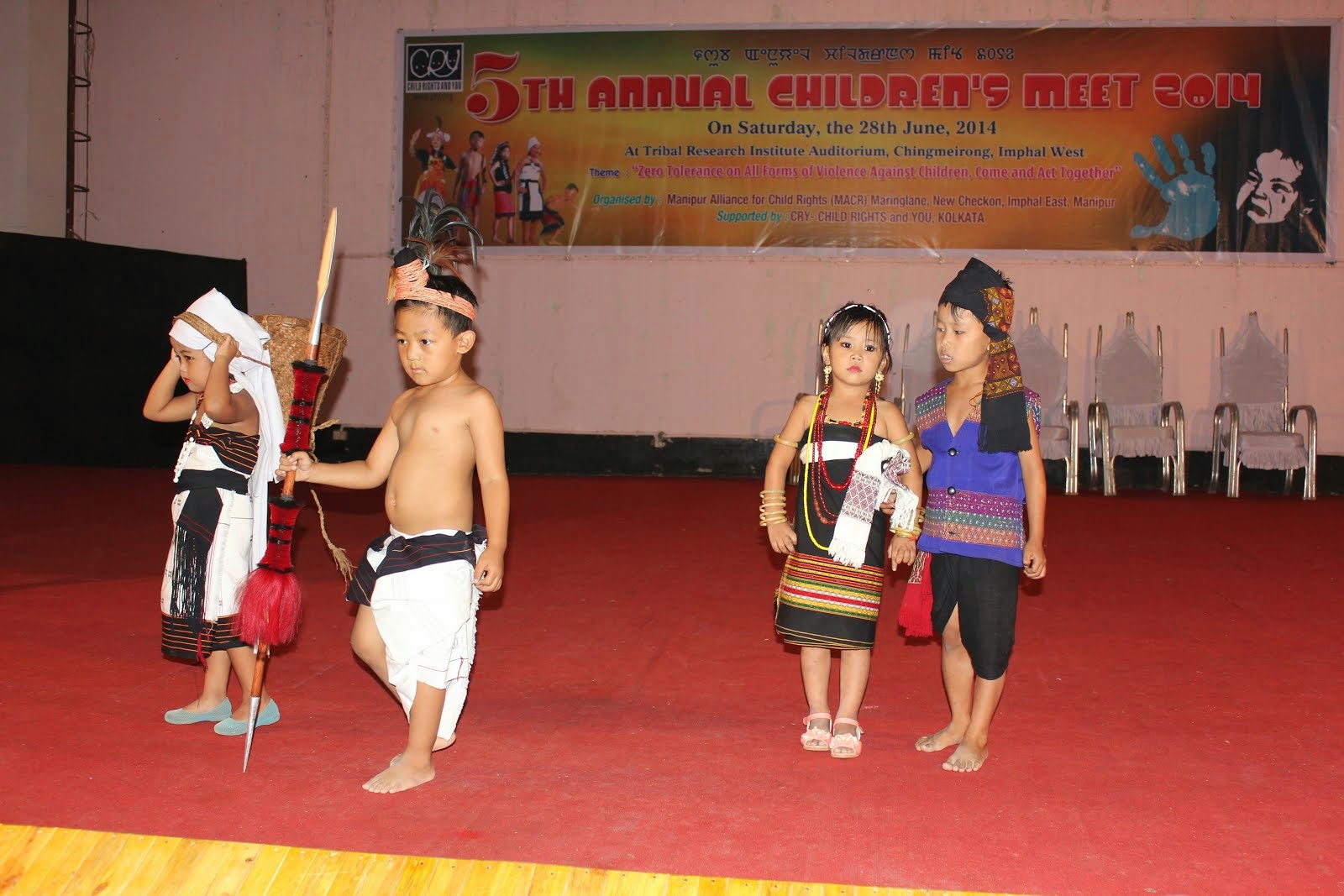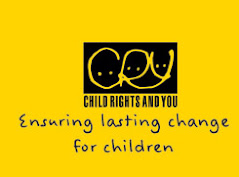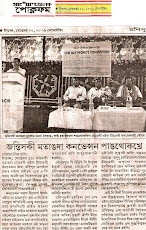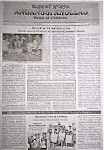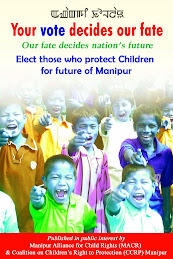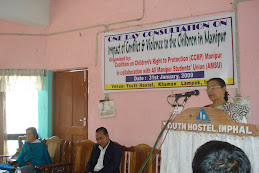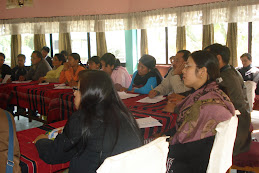By Dr. Priyadarshni M. Gangte
“Education is a liberating force, and in our age, it is also a democratizing force, cutting across the barriers of castes and class, smoothing inequalities imposed by birth and other circumstances” -Indira Gandhi
Introduction
The overall scenario of present education system in Manipur in terms of infrastructure building, faculty development, student amenities and teaching method including governance pattern from school to higher education both under Government managed schools and Privately administered schools had witnessed a tremendous lacked of initiatives on the part of the State Government since the last many years and till date. A negligence of education sector caused a large scale migration of student to outside State in high cost and preference to other courses. However, Private institutions to some extent had ensured its own sustainable management and development in terms of performance for better academic activities than Government institution. In addition, the aim of education also shall include about discipline, morality, manner and etiquette apart from general education in making a well decorated feature.
Growth and Development
There was a sharp difference towards growth and development between government and private institution. Its causation of difference were evident from the statistic that there was a senses of prevailing competition among the private schools in pursuit of better infrastructure and academic performances, whereas Government schools has shown no mood of competitive among them. This senses of competition has instigated many private stake holders to come forward for setting up of more private institution thereby displaying the space of growth and development of education in the private sector.
Budget for Education
Education in Manipur remains the most neglected sector among the sector of the government. This evidence has been seen from the purview of sectoral allocation of funds to all departments under the prepared Budget for every financial year. Education sector needs a multiple allocation of sufficient fund for various purposes. Such as development works, faculty development, students amenities, career and counseling improvement including financial assistance to private institution etc. For example, this year (2012-13) Budget of the state allocated by Union Planning Commission is about Rs. 3500 cores. However, it seems that maximum fund is likely to be spent for payment of liabilities to major project/works implemented in the state rather than allocating it to education. Although, advocacy to which Education holds the key to all round development is appreciated.There is no separate education policy in Manipur.The state is adopting the NPE 1986, with modification made in 1992 with appropriate State Plans of Action.Education in the State is guided by the National Policy on Education is framed by NCERT,NCTE and UGC.
Education Funding
The pattern of funding and flow of funds to Educational Institution in the state of Manipur are not commendable and laudable since the educational institution have confronted with a huge deficit of infrastructure development and faculty teaching and other facilities required for fulfillment of a normal of the institutions. Therefore, a permanent funding system needs to be created to meet all sorts of requirement on exigency basis.
Matching of society and education
There is a need for masses to participate in the development of education. The school authority and teachers alone find it difficult with them to bring education to grass ]root level without involvement of the people. A mechanism is needed to evolve where masses can take part in the education system, so that children carefully concentrate their mind in the learning and teaching method for a fear of repercussion to come from their parents in the event of neglecting their study at school and home. Besides, it will also pave the way for strengthening the relationship of the school authority, teachers and parents in their pursuit to cater better education to the children. Curricular activities like organizing sports event are frequently held in school campus with the objective of enhancing the skill of talented students in the sport arena in presence of their parents.
DONER Ministry
This Ministry of DONER was created exclusively to take of developmental works in the North East Region. A number of major infrastructure developments at various educational institutions have been implemented at par with other departments in the region. However, it is regretted that private educational institution have been excluded from funding under this ministry since its inception till date without considering the potentiality of growth and development that the private institution has had excel the Government institutions. Now it is highly desirable to include private educational institutions for funding under this Ministry as well as to give a lion share of funds to government administered educational institution more than other sectors with the objective of eradicating in the region.
Look East Policy
It is a great opportunity for the people of the region to get linking and access to across the globe with the construction of TransAsian HighwayNo1 through North Eastern Region and opening of International market at Moreh, however a risky is also there for regional people may likely to face more burden on aspect of economic exploitation and deprivation of the universal facilities in the hands of developed nations,(local vs. global) if proper education to aware particularly on trade and business and generally socio- cultural and political which are not fully equipped with the local people before this policy is actually translated into action.
Vocational and other streams
Vocational educational or training must be set up and it should be encouraged for the students to come together to develop their skill and knowledge with self confidently before preparing to face a competition for a particular job that they wish to get . In this regard It is pertinent to know in details that at secondary and higher level, diversified courses of study should be provided to meet the interest and professional needs of students such as, Fine-Arts, Music, Dance, Dramas, varieties of games and sports modern technology, computer application, mass communication, carpentry, weaving , sewing, embroidery, knitting and so on because after the school or college education they have to face the technical problems- the actual hard realities of livelihood; every students should be trained for future so that they may be abled to support themselves economically, so educational pattern should be self supporting model, and for that matter, physical education also be not sidelined. In this regard, the former President of India Dr. A.P. J. Abdul Kalam has outlined a three prolonged strategy to device employment oriented education system addressing the nation on the eve of 58th Independence Day on 15th August,2004. ]He said firstly the education system should highlight the importance of enterpreneurship and prepare the students right from the college education to get oriented towards setting up the enterprises. This would include diversity of skills and perseverance in works. He emphasized that the curriculum for arts, science, and commerce should included topics and practical where such entrepreneurship is possible.
Secondly, the banking system should provide venture capital right from every village level to the prospectus entrepreneurship for understanding new ventures. Banks have to be proactive to support the innovative products for enabling wealth generation by young entrepreneur by setting aside the conventional tangible asset syndrome. Thirdly, there has to be an economic pull for generation of marketable products and enhancement of purchasing power among the people. This can come through by implementation of mega programmes such as rival connectivity interlinking of various infrastructure and power sector missions and interims development. Pointing out that recent study has intimated level unemployment in the country to be around 36 millions, the President asserted that the country can find productive employment for all this many people by launching certain missions such as bio diesel generator through plants including Jatropha, dry land and herbal farming in the available 33 million hectares of waste land earmarked for cultivation .Hence, educating farmer/cultivator communites by organizing mass awarness programs such as seminars, workshop, etc by the Departments of Agriculture, Commerce,ICAR,CAU, etc. to create a mindset for gearing up to face this LPG world. Agriculture is the main source of the State economy.However, Agriculture Department is yet to come out with the desired manner of the public in its endeavour towards welfare activities of farmers for living both in rural and urban areas in the State of Manipur. Hoticulture Mission under Horticulture Department is doing a little progress in the State. However the task of substituting Jhuming cultivation has remained untouched in the hill areas, where Horticulture Department is expected to do so in introducing alternative means of livelihood for the tribal people, so that they stop to practice of old culture of cultivation in the hills. Therefore, Department of Horticulture is urgently required to tie with hill people in search of alternative means of their livelihood as replacement of jhuming cultivation in the hill areas.
Curriculum
In the context in Manipur, curriculum is desingned by the subject exparts under the instruction of BSEM,CHSEM and Manipur University,rather continued to impose another sort of impediment and hindrance in the way of learning teaching- process every educational institution due to introduction of different curriculum and syllabi that too, disorded, not in sequence and non- availability of sufficient numbers of prescribed textbooks in the open market or bookstore. Thus it is highly desirable to maintain a common textbook delivered very effectively in the desire manner.The present curriculum of the state meets only half of the needs.Much more needs are to be done.There are enormous gaps in the education system of Manipur.It has not solved the conflicts as the state economy is declining.Peace education is desirable to fill those gaps.
Career and psychology counselling
Counseling centre for series of job also be opened at various educational institutions by engaging experts and well experience persons to give a professional counseling and proper advice and guidance to students so that they would be able to solve their own problems without any difficult Besides, a psychological counseling is needed to give the same to students so as to avoid abuse that may lead them to psychological and emotional problems.
Coaching /Tuition System
At present situation, it appears that coaching or tuition system is dominating the society with regard to pursuing the goal of education. In fact, coaching has been helping students to get and learn more understanding in particular subject(s) that has not been properly understand by them in the school teachings. However, it is not desirable to encourage them to entirely depend on tuition and support. In school teachings, it includes culture, discipline, manner and etiquette apart from learning general education of all courses, whereas, in coaching centre it lacks other courses of teaching except task focus on particulars subject or lesson, which may lead to imperfect education at the end. In addition to it, some parents bear another burden, from home to coaching centre, because they used to drop and pick up their children from coaching centre while some parents have accompanied their children to tuition centre and, even ,waiting for them until their tuition is over so as to bring them back to home. This trend an emerging culture will ultimately resort the children/student to lack their responsibilities and duties in family, society an state in future.
Education System under District Council
Contrary to the objectives laid down thereof, the District Council Schools have remained, still lagging behind in all respect: adequate school buildings for all schools of District Council need to be built up urgently, adequate school infrastructure buildings such as, academic building, teacher quarter, staff quarter and chowkidar quarter are inevitable to be constructed for a smooth functioning of the schools under District Council; teachers and staff of the District Council School should have to stay in their quarters nearby the schools so as enable them to render their services in pursuit of fulfilling the provision of free and compulsory education reaching to the needy students in the Hill Districts, authorities of District Council in coordination with school teachers should have introduce different kind of facilities under District Council which may lead to attracting local children for their willingness to learn education and to send their children to schools as a part of policy towards eradication of illiteracy in the Hill areas, no teachers of District Schools shall be allowed to draw their salary without performing their duties in the schools no system of engaging a substitute teacher by a regular teacher in the schools is allowed to take place forthwith on the part of the authorities. Local people and village authorities in the Hill District should join hand together and form a suitable Committee which can gives a regular monitoring over the functioning and administration of District Council Schools in the Hill Districts. A permanent office for DI&AI of District Council Schools in every Sub-division of the Hill Districts should be set up in order to strengthen the District Council Schools and also to facilitate teachers and students to get easy access to authorities for presenting their grievances and redresssing their actual needs in a short time possible.
As education is the key to all-around development however, remained neglected for all the times in Manipur? The provision of free and universal primary education to the children upto the age of 14 in the State is still a dream. Huge investment on education sector in order to facilitate for masses to get access to education with low cost and affordable is still an articulation of theory and paper work in the state. We all know that literacy has been identified as an important factor in individuals’ emancipation. Mahatma Gandhi had emphatically maintained that education is all round development of body, mind and spirit. We need a structural change from the present Indian western education system because it is not world class system as it is not character and man making education. This is the reason why education failed in India. Education ones have failed to create the mechanism to go with every aspects of life with everyone in this world. Swami Vivekanandas’ philosophy of education also counter and challenges in the system by pointing out(i)lack of development of power of concentration of mind and(ii)lack of holistic and long term vision i.e. lack of spiritual; because of two reasons;(i) enabling mind for perfection, quality and excellence and (ii) petty and narrow minded and the thoughts only of immediate gains instead of long term good.
Conclusion
Now, it is high time to take up a holistic improvement towards educational system in the state to use the same in a long way. To reiterate, in a fast changing society and economy, a harmonious society needs individuals, intellectually high enlightened, physically healthy, economically self-sufficient, politically self-conscious, mentally well balanced, morally well discipline, religiously- highly spiritual. Absence of all insecurities will ultimately lead all the individuals. Students who are future generation to be the responsible members and citizen of the family, society, and country wherever he/she belongs to, perhaps would be landed in disequilibrium. Therefore, the State Government, Parents, Civil Societies, Media and NGOs have to join hand together and play a vital role in ensuring a complete reformation of educational system in the state.


